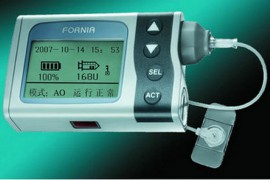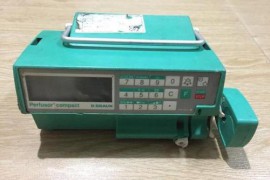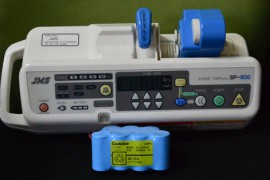生物谷报道: St. Jude儿童研究医院研究人员最近发现,irinotecan治疗不需进行昂贵的基因预测试(检测药物是否对患者有副作用)环节,且多次低剂量注射治癌药物irinotecan比一次性大量注射有效。
irinotecan常用于治疗儿童实体肿瘤如成神经细胞瘤、肉瘤和肾瘤。人体中的UGTIA1酶能够催化irinotecan的活性形式——SN-38,便于细胞很快清除SN-38,但UGTIA1酶的UGT1A1*28的形式不能催化SN-38,结果聚集在体内的SN-38引发腹泻或neutropenia。Neutropenia(嗜中性白血球减少症)患者免疫力差,体内的嗜中性粒细胞(免疫细胞)数量明显偏低。
UGT1A1基因的启动子区有6个TA,而UGT1A1*28的启动子区有7个TA。之前的研究结果显示,携带两个UGT1A1*28基因的成年人接受一次高剂量irinotecan注射后,出现严重腹泻或neutropenia。美国食品和药品监督管理局要求irinotecan的包装上注明该药容易使UGT1A1*28基因纯合子患者产生neutropenia,并且叮嘱临床医师慎重考虑给药剂量。
文章第一作者Clinton Stewart想知道,连续两周对带有两个UGT1A1*28基因拷贝的儿童注射低剂量(正常水平的1/10)irinotecan是否会引起腹泻或neutropenia。
接受低剂量注射治疗的74名实体肿瘤儿童患者中,27名有两个正常UGT1A1基因拷贝,36名既有UGT1A1*28基因又有UGT1A1正常基因,9名有两个UGT1A1*28基因拷贝。结果显示,UGT1A1*28基因与腹泻、neutropenia之间没有相关性。因此,研究人员认为检测患者是否有UGT1A1*28基因是没有实际用途的。
研究结果提示:临床医师不必检测儿童是否携带与neutropenia副作用相关的UGT1A1基因突变,直接进行irinotecan治疗,并且两周内低剂量给药取代标准的每月一次的大量给药,irinotecan能够很快发挥药效。研究结果刊登于6月20日Journal of Clinical Oncology。
文章高级作者Lisa McGregor说,这项发现有助于临床医师设计有效、安全的irinotecan治疗措施。
原始出处:
Journal of Clinical Oncology, Vol 25, No 18 (June 20), 2007: pp. 2594-2600
© 2007 American Society of Clinical Oncology.
DOI: 10.1200/JCO.2006.10.2301
UGT1A1 Promoter Genotype Correlates With SN-38 Pharmacokinetics, but Not Severe Toxicity in Patients Receiving Low-Dose Irinotecan
Clinton F. Stewart, John C. Panetta, Melinda A. O'Shaughnessy, Stacy L. Throm, Charles H. Fraga, Thandranese Owens, Tiebin Liu, Catherine Billups, Carlos Rodriguez-Galindo, Amar Gajjar, Wayne L. Furman, Lisa M. McGregor
From the Departments of Pharmaceutical Sciences, Oncology, and Biostatistics, St Jude Children's Research Hospital, Memphis, TN
Address reprint requests to Clinton F. Stewart, PharmD, Department of Pharmaceutical Sciences, St Jude Children's Research Hospital, 332 North Lauderdale, Mail Stop 313, Memphis, TN 38105; e-mail: clinton.stewart@stjude.org
Purpose: To study the association between UDP-glucuronosyltransferase 1A1 (UGT1A1) genotypes and severe toxicity as well as irinotecan disposition in pediatric patients with solid tumors receiving low-dose, protracted irinotecan (15 to 75 mg/m2 daily for 5 days for 2 consecutive weeks).
Patients and Methods: Seventy-four patients on five institutional clinical trials received irinotecan (15 to 75 mg/m2) daily intravenously or orally for 5 days for 2 consecutive weeks. Genomic DNA was genotyped for UGT1A1*28, and patients were designated as 6/6, 6/7, or 7/7 depending on the number of TA repeats in the UGT1A1 promoter region. Patients were evaluated for gastrointestinal and hematologic toxicity, as well as baseline and maximal serum bilirubin levels. Toxicity and pharmacokinetic results were evaluated during courses 1 and 2 of irinotecan therapy.
Results: The frequencies of 6/6, 6/7, and 7/7 genotypes were 27 (36.5%), 36 (48.6%), and 9 (12.2%) of 74 patients, respectively. Patients with 7/7 genotype had a statistically greater baseline total bilirubin than patients with 6/6 or 6/7 genotype (P = .005). UGT1A1*28 genotype was not associated with grade 3 and 4 neutropenia (P = .21 for course 1; P = .23 for course 2) or diarrhea (P = .176 for course 1; P = .87 for course 2). However, patients with the 7/7 genotype tended to have higher SN-38 area under the plasma time-concentration curve (AUC) values and lower SN-38G/SN-38 AUC ratios.
Conclusion: Severe toxicity was not increased in pediatric patients with the 7/7 genotype when treated with a low-dose protracted schedule of irinotecan. Therefore, UGT1A1 genotyping is not a useful prognostic indicator of severe toxicity for patients treated with this irinotecan dosage and schedule.
Supported by US Public Health Service Childhood Solid Tumor Program Grant No. CA23099, Cancer Center Support (CORE) Grant No. CA21765, and by American Lebanese Syrian Associated Charities. AstraZeneca Pharmaceuticals provided support for the conduct of the gefitinib clinical trial.
Preliminary data were presented at the 42nd Annual Meeting of the American Society of Clinical Oncology, June 2-6, 2006, Atlanta, GA.
Authors’ disclosures of potential conflicts of interest and author contributions are found at the end of this article.







